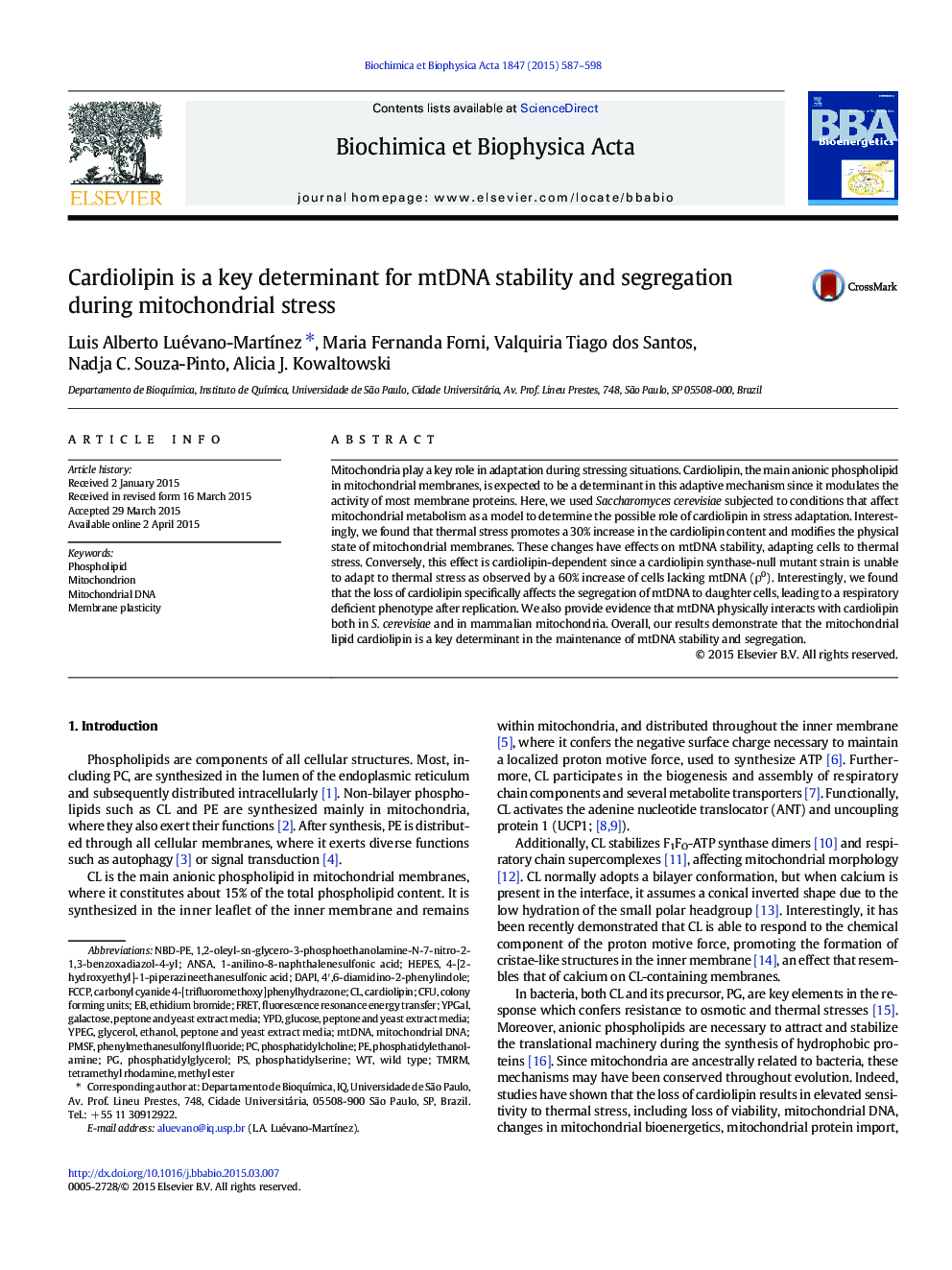| Article ID | Journal | Published Year | Pages | File Type |
|---|---|---|---|---|
| 8298723 | Biochimica et Biophysica Acta (BBA) - Bioenergetics | 2015 | 12 Pages |
Abstract
Mitochondria play a key role in adaptation during stressing situations. Cardiolipin, the main anionic phospholipid in mitochondrial membranes, is expected to be a determinant in this adaptive mechanism since it modulates the activity of most membrane proteins. Here, we used Saccharomyces cerevisiae subjected to conditions that affect mitochondrial metabolism as a model to determine the possible role of cardiolipin in stress adaptation. Interestingly, we found that thermal stress promotes a 30% increase in the cardiolipin content and modifies the physical state of mitochondrial membranes. These changes have effects on mtDNA stability, adapting cells to thermal stress. Conversely, this effect is cardiolipin-dependent since a cardiolipin synthase-null mutant strain is unable to adapt to thermal stress as observed by a 60% increase of cells lacking mtDNA (Ï0). Interestingly, we found that the loss of cardiolipin specifically affects the segregation of mtDNA to daughter cells, leading to a respiratory deficient phenotype after replication. We also provide evidence that mtDNA physically interacts with cardiolipin both in S. cerevisiae and in mammalian mitochondria. Overall, our results demonstrate that the mitochondrial lipid cardiolipin is a key determinant in the maintenance of mtDNA stability and segregation.
Keywords
DAPIYPGal1-anilino-8-naphthalenesulfonic acidYPdNBD-PETMRMFCCPPMSFCFUHEPES4′,6-diamidino-2-phenylindoleMitochondrial DNAethidium bromideFluorescence resonance energy transferFRETmtDNAphosphatidylcholinephosphatidylglycerolphosphatidylethanolaminePhosphatidylserinePhospholipidPhenylmethanesulfonyl fluorideAnsaMitochondrionwild typecolony forming unitsCardiolipin
Related Topics
Life Sciences
Agricultural and Biological Sciences
Plant Science
Authors
Luis Alberto Luévano-MartÃnez, Maria Fernanda Forni, Valquiria Tiago dos Santos, Nadja C. Souza-Pinto, Alicia J. Kowaltowski,
